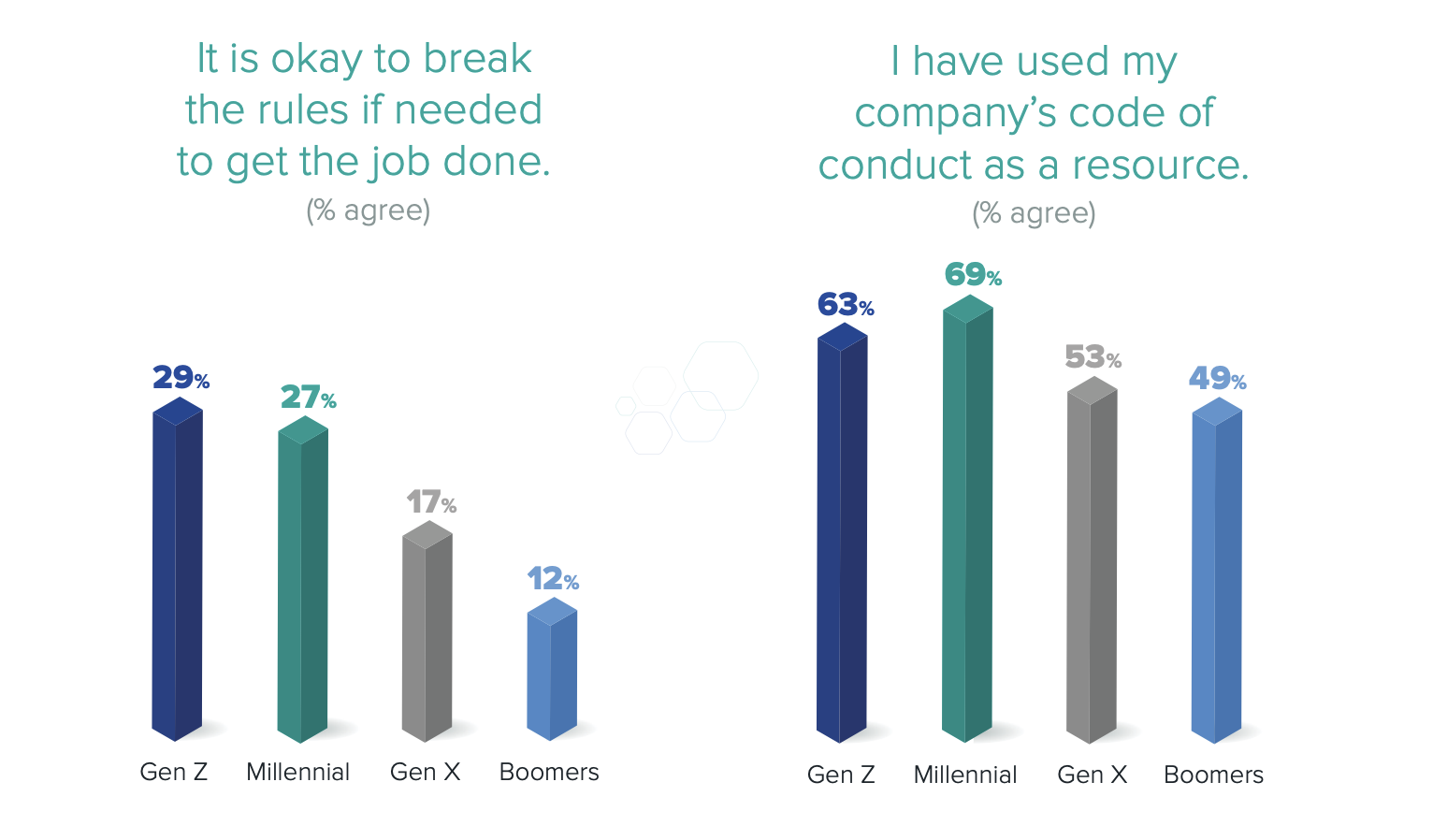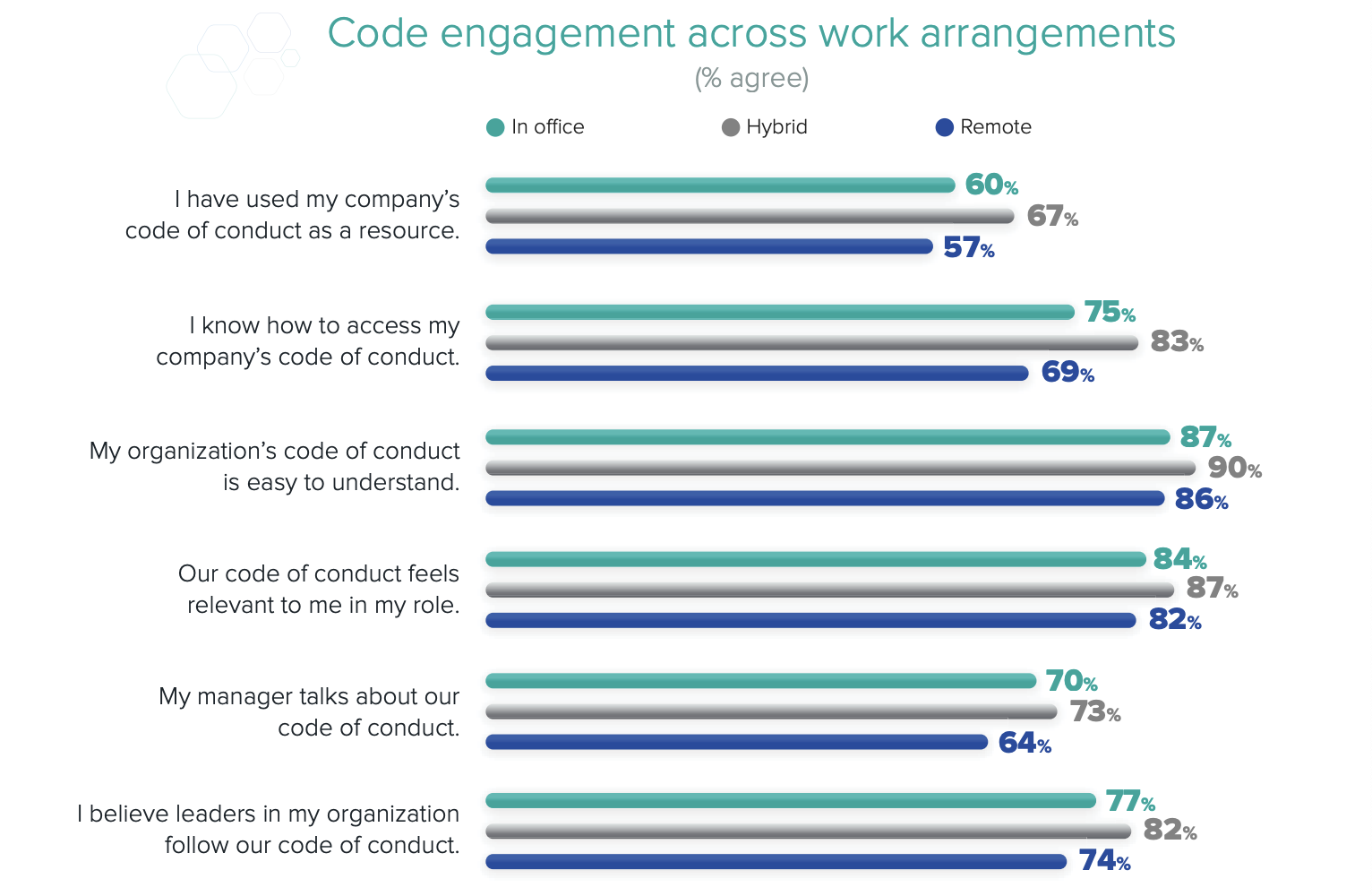
New survey highlights 'complexity of fostering strong ethical cultures'

Despite being more inclined to refer to a code of conduct, younger employees across the world are more comfortable with breaking the rules — just to get the job done.
This is according to an LRN survey of more than 8,500 full-time employees across 15 countries in Asia-Pacific, Europe, North America, and South America.
According to the findings, Gen Z and Millennial employees are more likely to have used their company's code of conduct as a resource.
But, at the same time, they are also more likely to say that it is "okay to break the rules if it is needed to get the job done."

Source: LRN's 2024 Code of Conduct report
Jim Walton, LRN Advisory Services Director, said the findings underscore the "complexity of fostering strong ethical cultures" amid the presence of four different generations in the current workforce.
"Codes of conduct play a key role in guiding the development of ethical, compliant workplace cultures, and organisations must think strategically and creatively about how best to bridge the generational gaps as they shape their business culture for the future," said Walton, who is also the lead author of the report.
Meanwhile, the report also discovered that engagement with an organisation's code of conduct also depends on an employee's work arrangement.
Remote workers are less engaged with their organisation's code of conduct, while hybrid employees are more likely to be engaged with it.
In particular, only 57% of remote employees said they have used their company's code of conduct, much lower than the 67% of hybrid workers who have used it.

Source: LRN's 2024 Code of Conduct report
"According to our employee survey data, hybrid employees scored highest across the board in all areas of engagement with their codes of conduct," the report read.
"This was an unsurprising finding, as hybrid seems to have become the most popular arrangement for both employer and employee in terms of finding a good balance of flexibility and reliability."